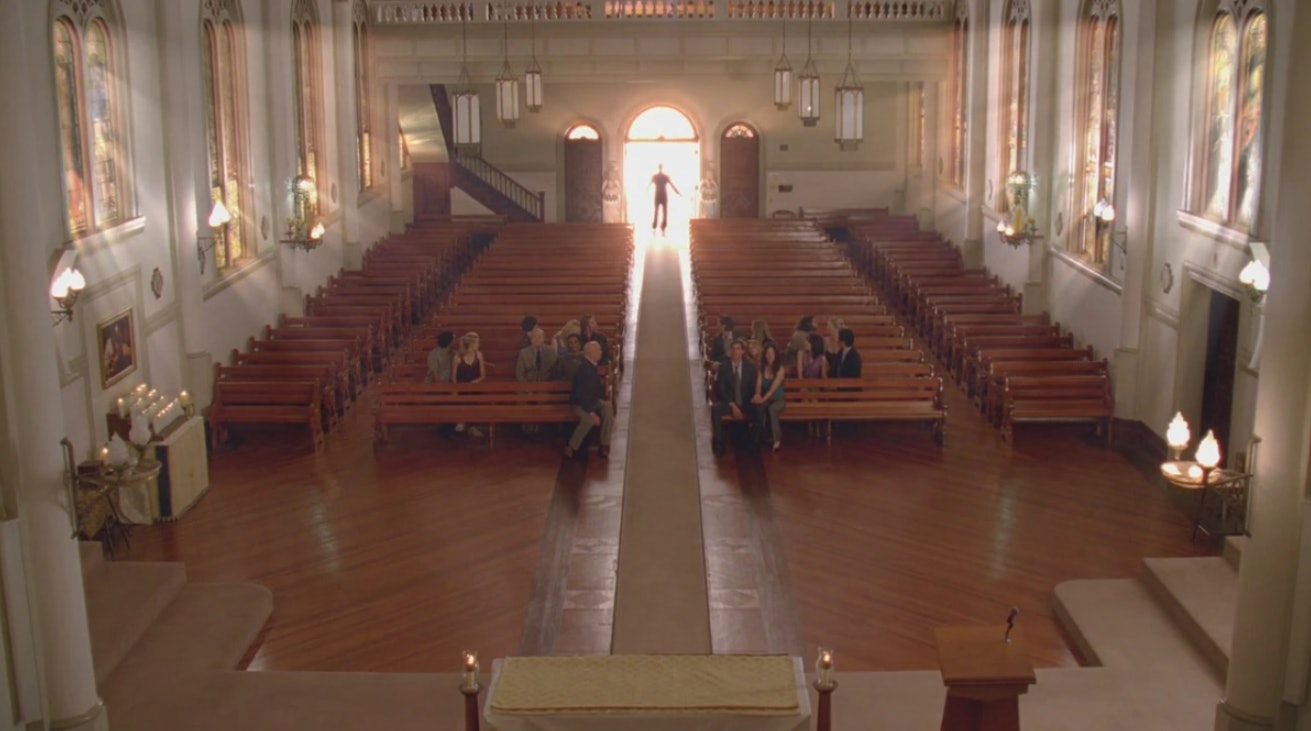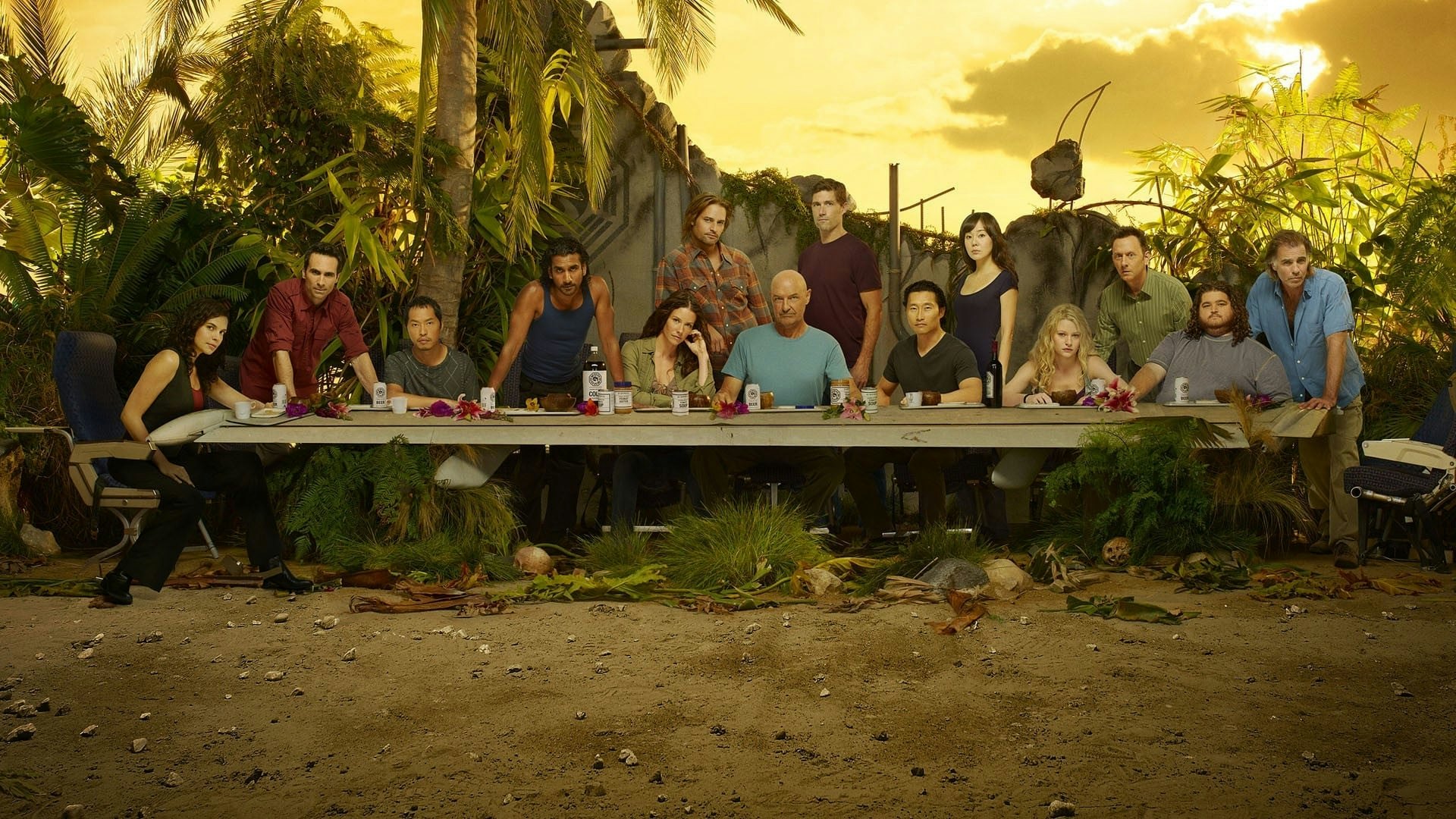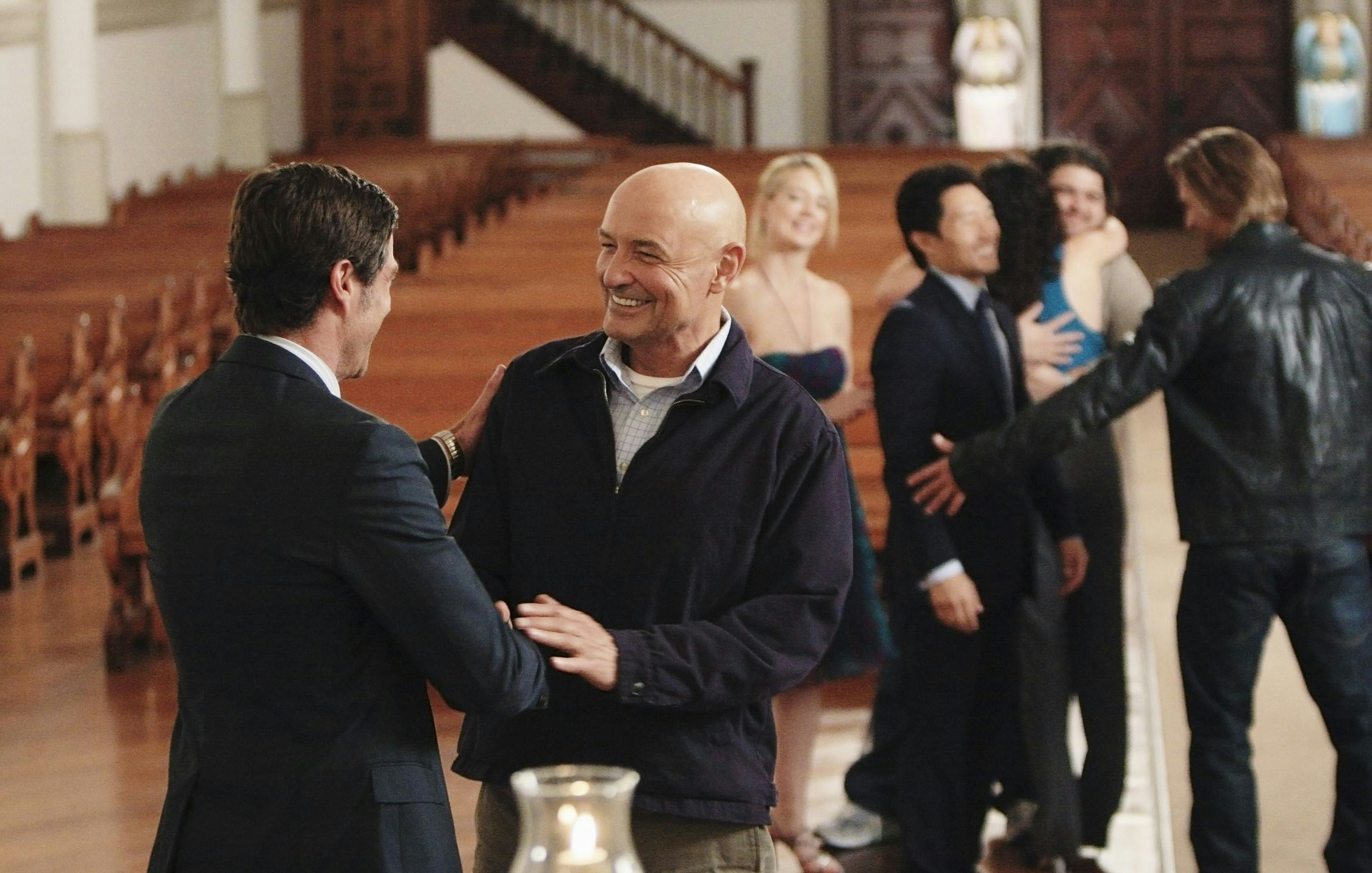
With the finale of Mrs. Davis, another Damon Lindelof show has come to an end— this time just weeks after it premiered. It’s not the first time we’ve seen characters he co-created jump down a hatch or get rescued from an island, only to return by choice.
With Lost, The Leftovers, HBO’s Watchmen, and now, Mrs. Davis, Lindelof is behind some of the best TV of the last two decades. However, it took a few years for him to reestablish trust after the Emmy-winning Lost alienated some fans with its own misunderstood series finale, “The End,” on May 23, 2010.

With flashbacks, flashforwards, and then sideways flashes, Lost delivered 121 character-centric episodes over the course of six seasons. Yet as it labored to meet the demands of network TV on ABC, not everyone in its audience realized they were watching a show that was primarily character-driven, as opposed to plot-driven or mythology-driven.
To be fair, the addictive plot and sizzling cliffhangers are what hooked over 15 million viewers and kept 10 million of them tuning in until “The End,” as Lost put the survivors of Oceanic Flight 815 through the paces on a tropical island populated by polar bears and one big bad smoke monster. Lindelof, co-showrunner Carlton Cuse, and the rest of the writers introduced mysteries in a serialized fashion, and many at home got caught up in the fun of theorizing, expecting a pat solution like a murder mystery.

Lost was never interested in that and its attempts to appease fans with answers often backfired. Just two episodes before “The End” came “Across the Sea,” a last-minute detour into a cave of light and island mythology, where there’s a literal wild boar chase and guest star Allison Janey says, “Every question I answer will simply lead to another question.” In its bid to turn offscreen concepts into characters, the episode reduces Jacob (Mark Pellegrino) and the Smoke Monster (Titus Welliver) — two important, godlike figures who didn’t appear in human form until the Season 5 finale — to a couple of squabbling mama’s boys.
If “Across the Sea” was Lost at its nonsensical nadir, “The End” was the tearjerker of a finale that redeemed the show and its characters through community. Lovers who perished or were left to grieve are reunited in the sideways world, as Desmond (Henry Ian Cusick) helps awaken them, and memories of their island life flash before their eyes.

Were they dead all along? Was the island purgatory? No, but that’s not the point, either. Like the rest of the narrative Rube Goldberg machine, the Drive Shaft concert, and the church with stained glass representing major world religions are just excuses to bring these characters together.
In the finale’s island storyline, the man of science, Jack (Matthew Fox), and Terry O’Quinn’s man of faith, Locke (more accurately, the version possessed by the Smoke Monster), gaze down the length of a waterfall instead of the Hatch, and it brings us full circle back to season 1, just like the final image of Jack’s eye closing in the bamboo grove does. Having Hurley (Jorge Garcia), the surrogate fan, take over as the island’s new protector is a way for the show’s creators to leave it in the audience’s hands and entrust its legacy to them.
With hugs set to series composer Michael Giacchino's music, “The End” shows conclusively that, in Lost, the people were the plot, and the mystery was a MacGuffin. For the show’s ever-expanding cast of characters, many of whom were “lost” or damaged goods before they crash-landed on the island, it functioned as a kind of rehab, giving them the chance to peacefully co-exist and break the vicious cycles that had defined their personal lives.

Much of the show shapes up as one long game of “us” versus “them,” with alliances shifting and different characters and groups like the original survivors, the Others, the Tailies, and the freighter people working at cross-purposes. Acting out of misplaced fear puts them in conflict with each other, but the connections they make along the way are there for a reason, and it’s precisely when the lost find each other that they can finally move on.
Some hour-long dramas, such as Breaking Bad, have excelled at writing themselves into a corner and then reverse-engineering a way out of it. But Lost was never one of those. Parts of its plot still fry the brain, and there are some details that sound ridiculous out of context.
“The End” makes emotional sense, though, and until someone solves the mystery of life (which is all the mystery of the island ever was), that’s the wavelength that matters most for a character drama like Lost. Despite some silly moments where it shark-jumped through time, Lost never lost the plot of the people or characters that drove it.






